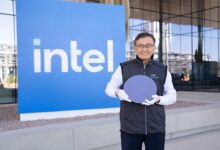Broadcom and TSMC Eye Intel Amid Struggles, Raising Monopoly and Policy Concerns

Two semiconductor behemoths, Broadcom and Taiwan’s Semiconductor Manufacturing Company (TSMC), have been reported to strategize participating bids for Intel portions, signaling some major shiftings in the industry.
Though Intel ranks as the third largest semiconductor company in terms of revenue, it would be driven down as an acquisition target due to substantial hurdles. These issues, however, tend to raise severe concerns such as monopolistic control, national security, and the country’s policies on semiconductors.
Intel’s Struggles and Short-Term Focus
It has been a long time for Intel being a major player in the national security of the USA. Because of this, it has drawn government support for keeping chip production in the country. Critics, however, say that the company seems to pay more attention to short-term earnings and executive compensations than long-term innovative developments. In terms of advanced semiconductor manufacturing, Intel lags behind both TSMC and Samsung.
Speculation on Intel’s Divestiture
Though Intel has not openly indicated an interest in a takeover, its struggles in manufacturing and AI chip development have led to speculations involving asset sales. The foundry business, especially, is a candidate for divestiture, and if it rationalizes its operations, Intel’s chip design group is said to be in the sights of Broadcom.
Intel’s Foundry Losses
Intel’s foundries registered losses of $13 billion on revenues of $17.5 billion for 2024, whereas TSMC posted an operating profit of $41.1 billion on revenues of $90 billion, underscoring its strength in manufacturing chips. This gap shows that it is very difficult for Intel to compete against TSMC, given its advanced manufacturing facilities.
AI Boom and Intel’s Struggles
The AI-induced semiconductor boom has propelled NVIDIA and AMD, whereas Intel has somewhat struggled to gain traction. With all of its investments, Intel is still lagging behind when it comes to AI accelerators and high-performance computing.
Monopoly Concerns
Potential mergers and acquisitions by Broadcom and TSMC of Intel’s key divisions could pose a regulatory challenge. There is a fear that foundry business acquisition by TSMC could further consolidate its power in the chip fabrication industry. In contrast, Broadcom’s acquisition of the chip design unit of Intel may eliminate the prospects of innovation in AI and networking semiconductor sectors. These deals are anticipated to attract regulatory scrutiny and, by all accounts, possibly give rise to antitrust concerns.
Intel’s Breakup Possibility
Some analysts argue that a breakup of Intel could enhance specialized focus. Alternatively, a much clearer case could be made if the major players in the industry corner Intel assets to stifle competition. This poses a clear dilemma for regulators and policymakers.
Follow us on WhatsApp, Telegram, Twitter, and Facebook, or subscribe to our weekly newsletter to ensure you don’t miss out on any future updates. Send tips to editorial@techtrendsmedia.co.ke


